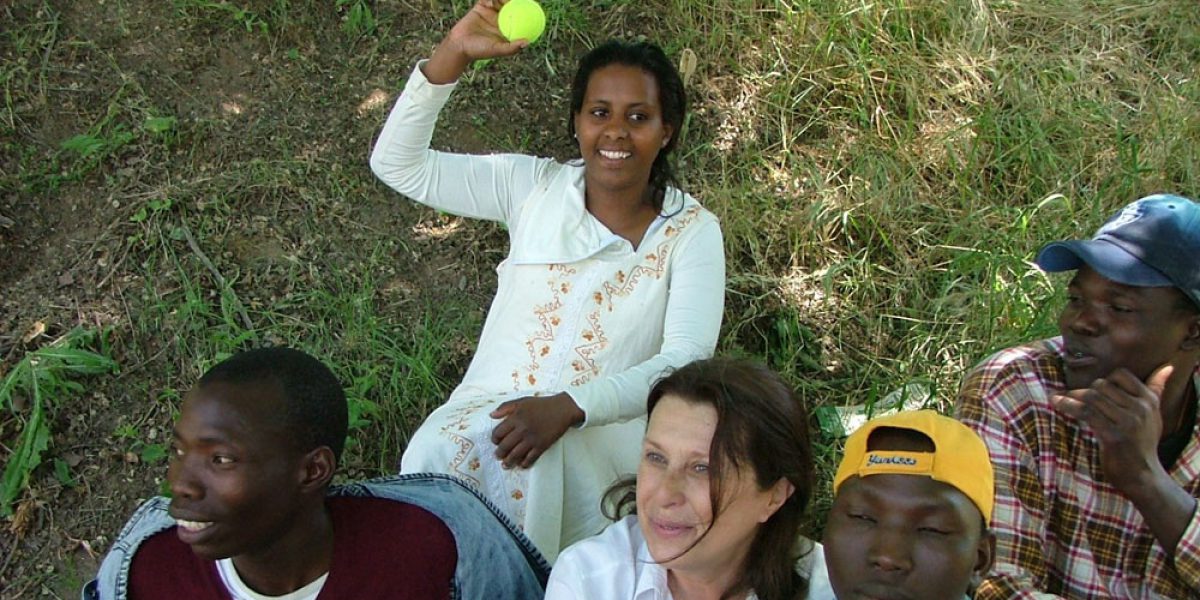Refugees welcome! Civil society acts
20 August 2015

Brussels, 20 August 2015 – As discussions continue on the political level about how to deal with increased numbers of asylum seekers in Europe, many citizens across the continent have been quick to set up local initiatives to welcome and support refugees. Whilst some politicians have raised fears about Europe being overwhelmed by migrants, many locals have shown that hospitality and friendship is possible even in difficult circumstances, such as in Greece, Hungary and Italy.
It is true that Greece and Hungary have seen a particularly big rise in the number of asylum seekers arriving to their countries this year. According to the UN refugee agency 124,000 refugees and migrants had arrived in Greece by sea at the end of July, mainly to the islands nearest to Turkey. Meanwhile, over 100,000 people have entered Hungary via the Western Balkan route this year according to EU border agency Frontex, although most quickly move on to other EU countries.
Syrians have made up over half of the arrivals in Greece and over a quarter in Hungary. There are also significant numbers of Iraqis, Afghans and Pakistanis. Hence a significant proportion of these persons will have strong claims to full refugee status.
Entering Europe by sea or land for these migrants remains extremely dangerous. Over 2,000 people have drowned trying to reach Europe by sea this year, whilst at least 24 people have been killed by trains as they walked along the tracks in the Balkans. JRS Europe strongly repeats its call for the EU to open up more safe and legal avenues for those seeking protection in Europe.
More crises mean more refugees and in this time of increased arrivals to Europe it is paramount that effective reception conditions and procedures are put in place as quickly as possible. The inhumane conditions – lack of food, water and shelter – reported on Greek islands like Kos and Lesbos are unacceptable.
In a speech last Friday, Migration and Home Affairs Commissioner, Dimitris Avramopoulos talked about funding for Greece, Hungary, Austria and France. But ‘showing solidarity and sharing responsibility’ is much more than the redistribution of financial resources. Avramopoulos did not outline concrete measures to implement safe and legal paths to Europe such as humanitarian visas, better family reunification rules nor more resettlement places. He did not apply more pressure on member states to meet the Commission’s modest targets for relocation and resettlement.
Although the results of the last meeting of 28 interior ministers was not a good example of European solidarity, local citizens in many countries have positively embraced refugees as British newspaper the Guardian recently reported.
Five friends in Hungary set up the Migszol (Migrant Solidarity) group in Szeged near the Hungarian border. People soon rallied to provide food and clothing to new arrivals. The Facebook group now has over 2,500 members and a core group of volunteers provide round-the-clock support to hundreds of migrants.
Volunteers in Greece have been distributing dry clothes, food and soup to refugees from day one and some even help to organise refugee camps. Students in Germany have set up a smart online system for people to help accommodate asylum seekers, much like the long-standing Welcome Project that has been run by JRS France.
And besides help with immediate reception, JRS continues to run language and vocational training courses from Portugal to Romania in order to help refugees integrate. In London, JRS has been involved in a project that helps women asylum seekers learn to ride a bike. Seemingly a simple skill, it not only boosts confidence but facilitates freedom of movement.
With so many local initiatives to help refugees, it is to be hoped that Europe’s leaders will follow suit, stop the hand-wringing and take positive action.
With so many local initiatives to help refugees, it is to be hoped that Europe’s leaders will follow suit, stop the hand-wringing and take positive action.
